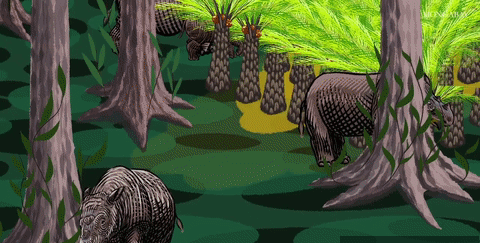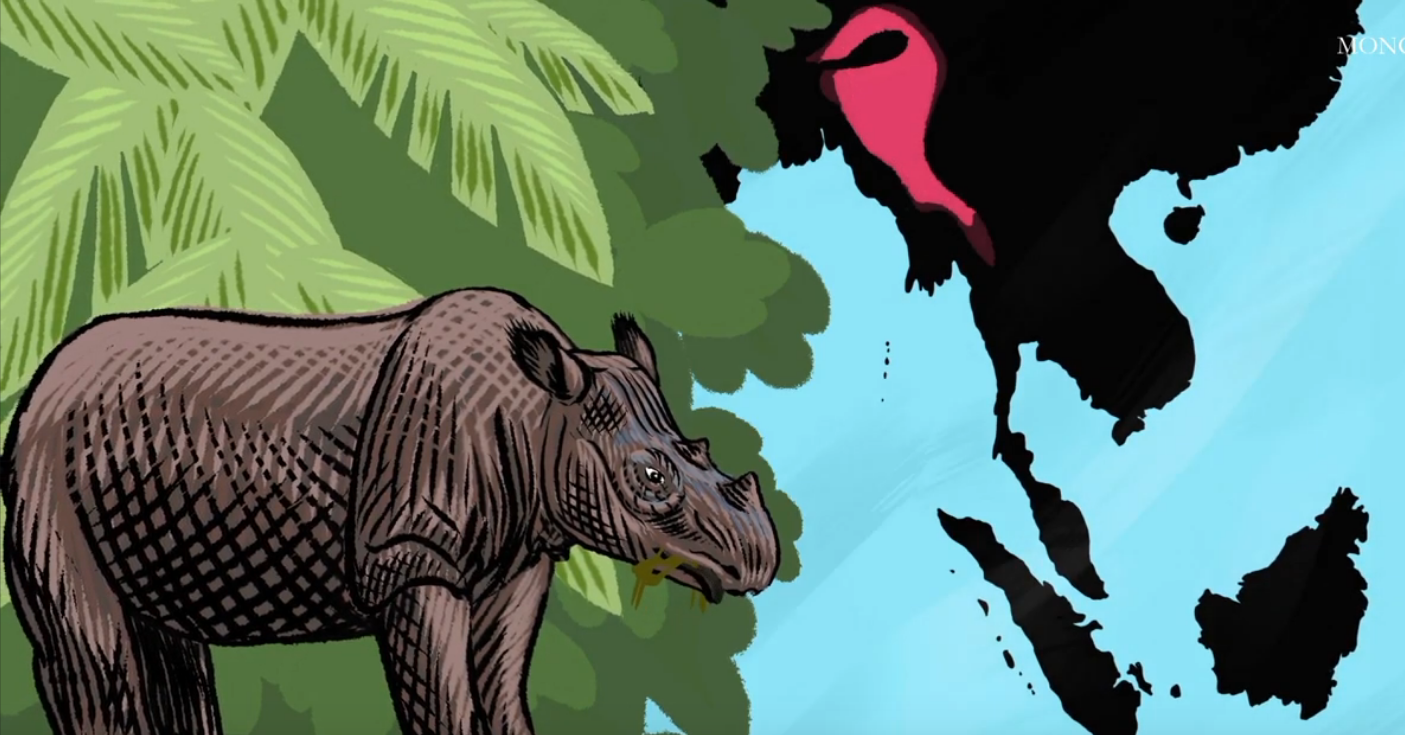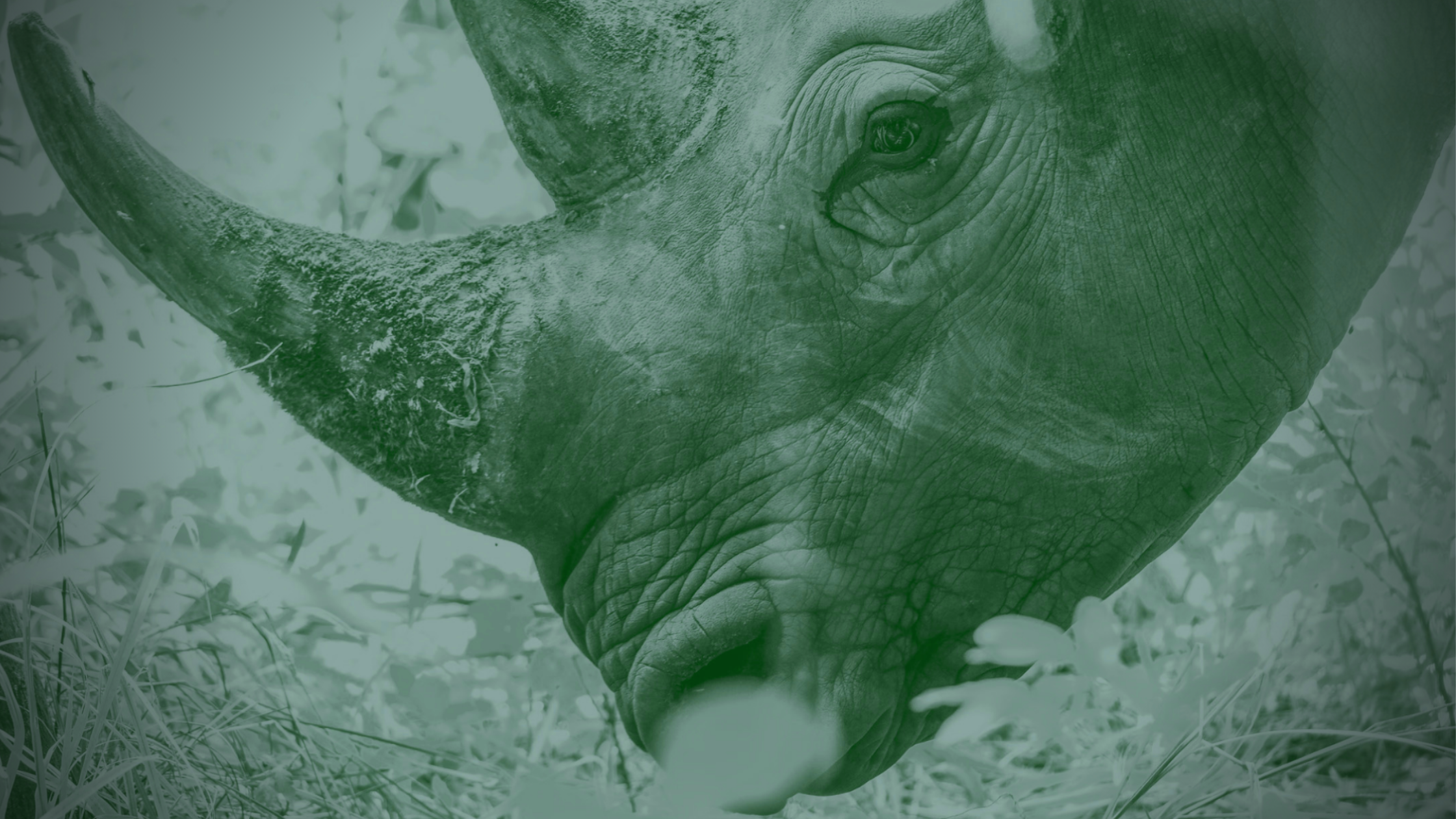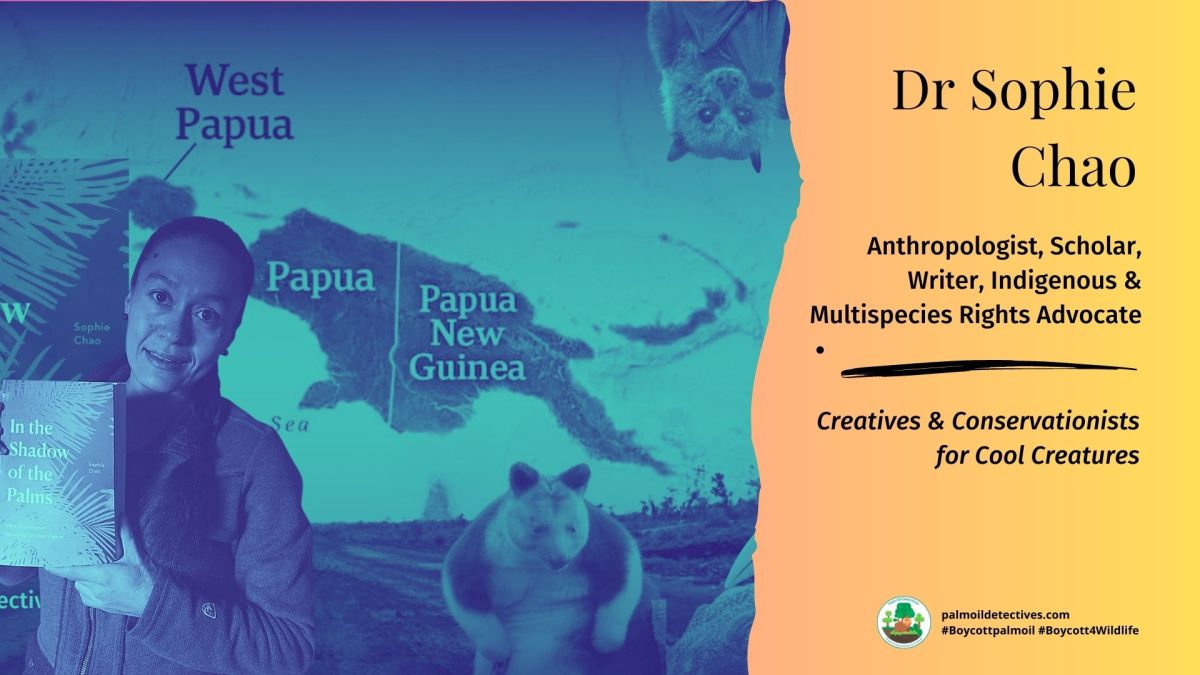Sumatran Rhino Dicerorhinus sumatrensis
Critically Endangered
Population: fewer than 1,500
There are fewer than 80 wild #Sumatran #Rhinos left in the wild, critically endangered by #poaching and #deforestation for #palmoil in #Sumatra. #Boycott the #brands destroying their home #Boycott4Wildlife
Tweet
The Sumatran Rhino is the smallest rhino in the world and is also the closest living relatives to the now-extinct woolly rhinos. Their population is unstable, threatened by poaching as well as the destruction of their habitat by unsustainable palm oil production. The species inhabits tropical rainforest and montane moss forest, and occasionally occurs at forest margins and in secondary forest (Nowak 1999). Sumatran Rhinos occur mainly in hilly areas nearby water sources, and exhibits seasonal movements, moving uphill in times of lowland flooding (van Strien 1975). This shy species is dependent on salt licks, and occurs mostly in primary forest in protected areas, but wandering into secondary forests outside protected areas, especially in the dry season in search of water (van Strien 1975).





This species is listed as Critically Endangered due to very severe past declines of greater than 80% over three generations (generation length estimated at 20 years if using average age of parents in the population); and because there is a continuing decline of at least 30% within 10 years or 90% within three generations (cause is inferred to be poaching and habitat loss due to encroachment); and because of their population size is estimated to number fewer than 250 mature individuals, with no subpopulation greater than 50 individuals, and the Sumatran Rhino is experiencing a continuing decline (the cause of the decline is inferred to be poaching, habitat fragmentation, human disturbance, and habitat loss due to encroachment).

We estimate that the probability of extinction in 3 generations (60 years) is 90%, without successful interventions.
IUCN Red List of Threatened Species
Further Information

Ellis, S. & Talukdar, B. 2020. Dicerorhinus sumatrensis. The IUCN Red List of Threatened Species 2020: e.T6553A18493355. https://dx.doi.org/10.2305/IUCN.UK.2020-2.RLTS.T6553A18493355.en. Downloaded on 24 January 2021.

How can I help the #Boycott4Wildlife?
Contribute in five ways
1. Join the #Boycott4Wildlife on social media and subscribe to stay in the loop: Share posts from this website to your own network on Twitter, Mastadon, Instagram, Facebook and Youtube using the hashtags #Boycottpalmoil #Boycott4Wildlife.
2. Contribute stories: Academics, conservationists, scientists, indigenous rights advocates and animal rights advocates working to expose the corruption of the palm oil industry or to save animals can contribute stories to the website.
3. Supermarket sleuthing: Next time you’re in the supermarket, take photos of products containing palm oil. Share these to social media along with the hashtags to call out the greenwashing and ecocide of the brands who use palm oil. You can also take photos of palm oil free products and congratulate brands when they go palm oil free.
4. Take to the streets: Get in touch with Palm Oil Detectives to find out more.
5. Donate: Make a one-off or monthly donation to Palm Oil Detectives as a way of saying thank you and to help pay for ongoing running costs of the website and social media campaigns. Donate here









Can you attach to any of your posts a list of those implicated whom we should boycott?
LikeLiked by 1 person
Hi Adrian, thanks for reading and your comment here 🙂
It’s nice to connect with you.
Here’s a list of brands to boycott. I will add more over time, as there are many more I just haven’t had time as it’s only me myself and I doing this.
https://palmoildetectives.com/2021/02/09/brands-using-deforestation-palm-oil/
Also if you want to know the research basis for the boycotts here that is – it’s based on evidence from Greenpeace, Environmental Investigations Agency, Rainforest Action Network and Chain Reaction Research, all industry watch-dogs that have called the RSPO a scam and their inaction on deforestation akin to environmental crimes.
https://palmoildetectives.com/2021/02/07/research-palm-oil-deforestation-and-its-connection-to-brands/
LikeLiked by 1 person